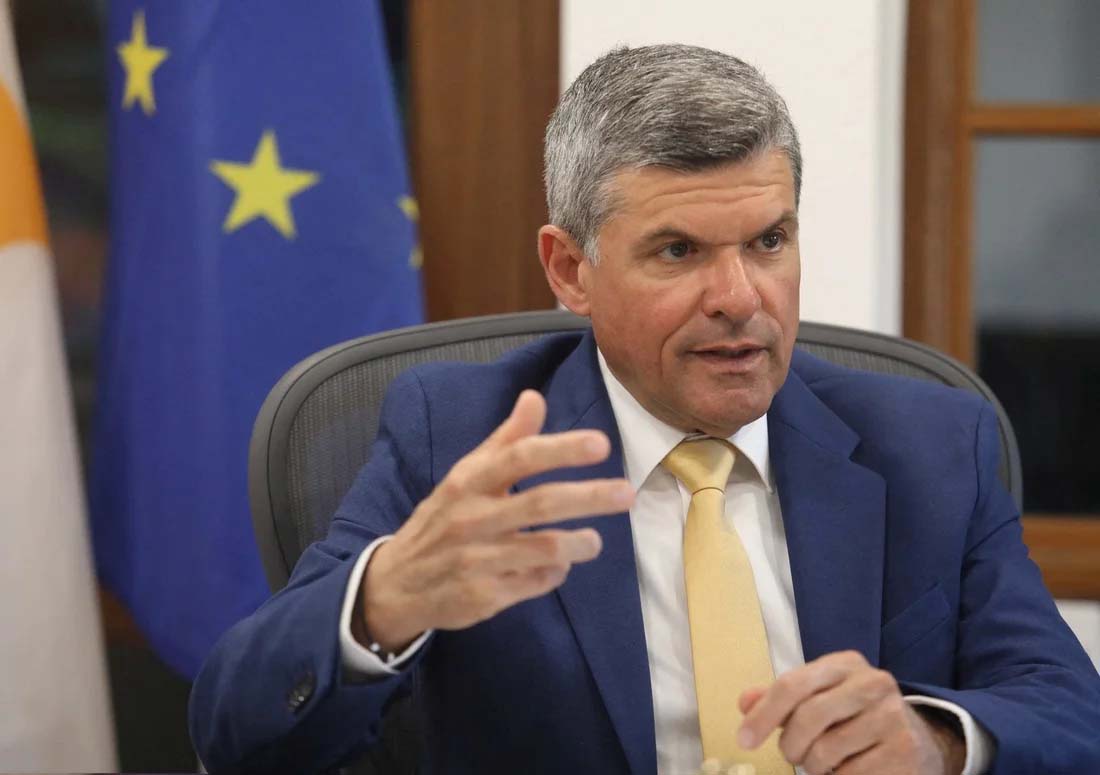The Republic of Cyprus will pay the €25 million demanded of it by Greece’s independent transmission system operator (Admie) when the Great Sea Interconnector project is being “implemented it in its entirety”, and the construction of cables alone is “not enough” to meet this criterion, Energy Minister George Papanastasiou said on Thursday.
“The project is not being implemented in its entirety. A part of it is being implemented, and this is the construction of the cable, which is not enough to consider that the project is being implemented,” he told television channel Alpha.
He said the government’s wish is to “honour our signature” regarding the payments to Admie, which, according to an agreement signed last year, would see five yearly payments of €25m made by the Republic of Cyprus to Admie before the interconnector is operational.
This would in effect help finance the project and ensuring that Admie, the project’s 51 per cent shareholder and implementing body, will have a stable income while investing in the project before it turns a profit.
“However, we expect that the implementing body will also honour its own signature … and that it will implement the project,” he said.
To this end, he added that “those two things go together”, and that “an obligation cannot only rest on the side which pays”, but must “also rest on the side which is implementing body”.
He then said that the government should “complete the pricing mechanism” so that “the €25m … if and when it is decided that it will be paid, will be ready for payment”, but then stressed that “without there being implementation of the whole [project], this will not happen”.
The €25m payment remains the major sticking point between Cyprus and Greece over the interconnector project, which, if completed, would connect both countries’ electricity grids to one another and to that of the State of Israel.
The Republic of Cyprus has cited a lack of tangible progress on the project and differences in opinion regarding how the money should be sourced in its withholding of the funding, with Keravnos saying last month of the former matter that his stance would change “if the project were being implemented right now and were at a good stage”.
Greek Foreign Minister Giorgos Gerapetritis had disputed this version of events, saying that surveys on the seabed in advance of the laying of electricity cables “did not stop”, but that in fact, “the research was completed according to its planning”.
Over the latter issue, the Republic of Cyprus had initially planned to utilise funds made available to it through the European Union’s emissions trading system (ETS) to make the payments, so as to prevent the burden of the payments from falling on the taxpayer.
Admie had warned that this arrangement may violate the EU’s rules on state aid, and as such asked the Cyprus energy regulatory authority (Cera) to begin charging consumers instead.
Despite this, efforts have been made in recent weeks to present a united front, with President Nikos Christodoulides and Greek Prime Minister Kyriakos Mitsotakis releasing a joint statement after a meeting on the sidelines of the United Nations general assembly in New York this week declaring that both countries are “fully committed” to the project.
The joint statement also said that the project is “of strategic importance”, and that both European Commission President Ursula von der Leyen and European Council President Antonio Costa “are fully aware of and support” the project.
Last week, Finance Minister Makis Keravnos said the Cypriot government has “no intention” to “create a confrontation with the Greek government”over the matter, while Christodoulides had earlier said for what he described as “the umpteenth time” that Cyprus is “fully committed” to the interconnector project.
“Let them hear it in Cyprus, in Greece, in Brussels, wherever they are interested,” he added.
Before that, members of the Cypriot government had raised concerns about the project’s feasibility, with Keravnos on multiple occasions having made reference to two “independent and serious organisations” which have “concluded that the project is not sustainable”.
Meanwhile, it was revealed that the European public prosecutor’s office (EPPO) had launched an investigation into the project, with Gerapetritis then forced to deny that his father-in-law was the subject of the investigation.
“No member of my family has any participation in a company associated with the project,” he said, adding that “absolutely no judicial investigation is being conducted into the issues falsely implied”.






Click here to change your cookie preferences